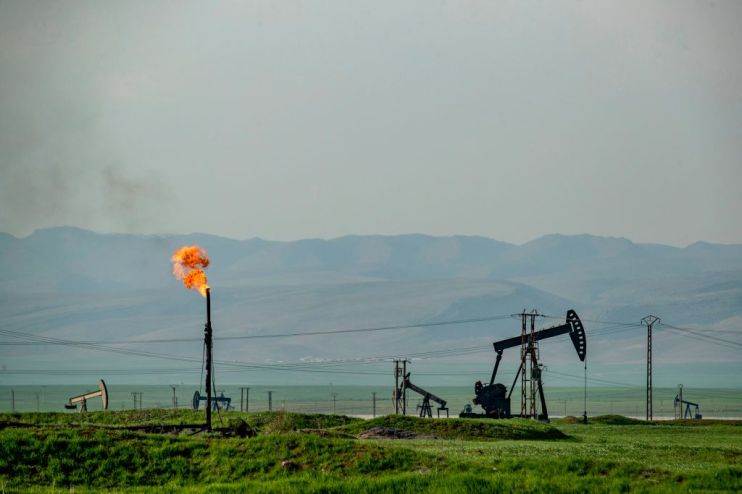Oil majors slash spending plans by a quarter as demand collapses

The world’s biggest oil firms have cut their capital spending programmes by a combined 26 per cent for 2020 due to the collapse in oil prices caused by the coronavirus outbreak.
In total, Reuters data shows that the combined sum of the cuts comes to $60.5bn (£48.2bn), as firms seek to conserve cash among an unprecedented fall in demand.
State-owned oil behemoth Saudi Aramco leads the way, cutting $10bn of its $37bn budget, whilst UK blue-chips Shell and BP slashed spending by $5bn and $3bn respectively.
Both stocks were among the FTSE 100’’s biggest fallers today as benchmark Brent crude prices stuck around the $27 mark.
Of the US majors, Exxon Mobil also cut spending by $10bn, while Chevron and Conoco Phillips dropped their capex forecasts by $4bn and £2.3bn.
US crude prices are set to fall to their lowest levels in 18 years after Opec lowered its global oil demand forecast.
Worryingly for investors, prices have continued to fall despite record production curbs Opec and its allies including Russia, which it was hoped would stabilise the market.
Sign up to City A.M.’s Midday Update newsletter, delivered to your inbox every lunchtime
However, with demand set to slump by 29m barrels per day in April alone, the alliance’s 10m barrel cut, which is expected to be supplemented by falling output in the US, still leaves an enormous overhang.
The problem for oil majors, explained Hargreaves Lansdown analyst Nicholas Hyett, is that while oil crises normally affect either supply or demand, the current coronavirus shutdown has hit both elements.
Due to March’s production war between Russia and Saudi Arabia, the market was flooded with crude stocks just as demand crashed to levels not seen since 1995.
Hyett said that for majors like BP and Shell, cutting capex and living off reserves would work in the short term, but there “would come a point” when they had to choose between maintaining payments of dividends or expensive spending programmes for low-emissions energy programmes.
Earlier today Shell unveiled such a programme, committing to becoming a net zero company by 2050 at the latest.
If BP and Shell are forced to cut their dividends, Hyett said, the “income output of the FTSE will be dramatically reduced”.
Currently the two firms are among six stocks – including the tobacco and pharma giants – which make up roughly 50 per cent of FTSE 100 dividend payments.